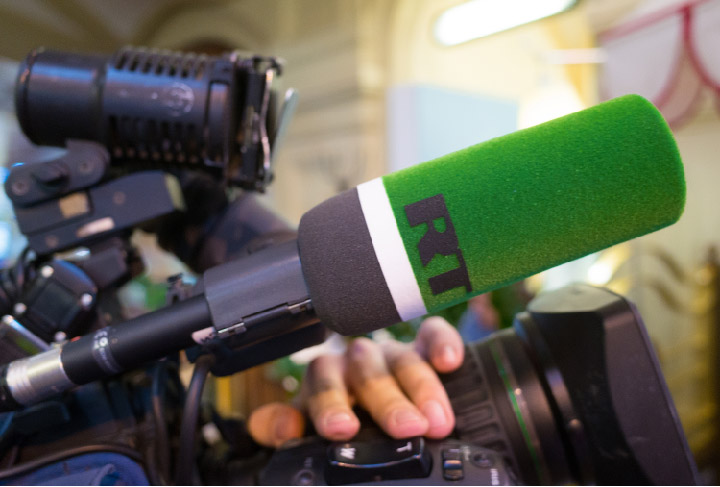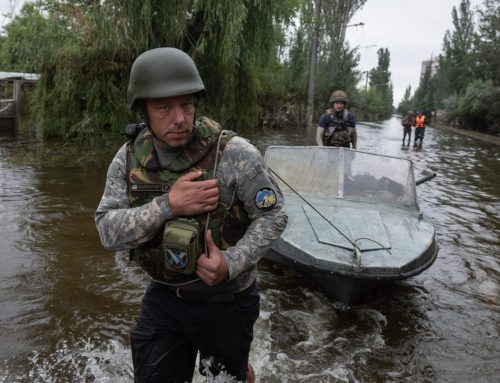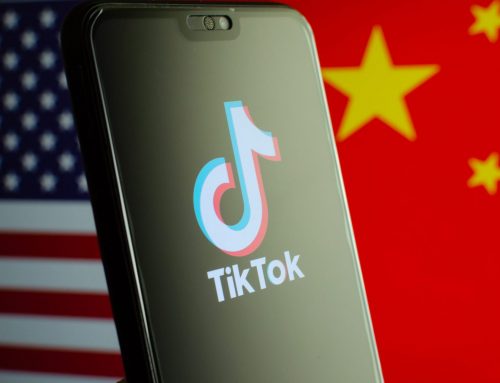Russian state media last week predictably decried the U.S. takedown of websites linked to Iranian propaganda, including Press TV, as an attack on free speech and evidence that the United States is selective about its commitment to safeguarding a free press. These narratives were also widely circulated in non-English language Russian state media outlets, with RT Deutsch providing particularly scathing coverage—including one article that extensively cited Hezbollah leader Hasan Nasrallah. In many instances, Russian content elevated claims from Iranian government officials and others affiliated with the affected websites, including a RT op-ed contributed by a journalist identified as “host[ing] a program on Press TV.” At least one disinformation outlet run by Russian intelligence services also made similar claims, with South Front alleging a broader U.S. effort to silence “independent” media. The focus on the U.S. takedown of Iranian websites fits within a broader—and longstanding—effort to frame the Western press as beholden to governments/intelligence services and Western governments as hypocritical in their crackdown on certain state-backed media outlets—Russia’s in particular. Russian state media and officials’ responses to a June 23 incident involving a U.K. warship sailing in the Black Sea off the coast of Crimea primarily focused on casting the ship’s movement as a provocation/violation of the Russian border and disputing the United Kingdom’s account of events, including through the promotion of footage that the Russian Ministry of Defense claims shows the incident. As is customary for notable anniversaries related to World War II, Russian diplomats put out a commemorative messaging push around the June 22 anniversary of Operation Barbarossa, marked in Russia as the Day of Remembrance and Sorrow. Putin also contributed an article to German newspaper Die Zeit for the occasion that hit various standard Russian geopolitical talking points, including the idea that the Soviet Union “saved Europe,” criticism of NATO expansion, and an expression of desire for better relations with the EU, which was promoted by both diplomats and state media.
Likely in response to Canada delivering a joint statement signed by 44 countries at the UN denouncing China’s human rights abuses in Xinjiang, China’s propaganda apparatus last week singled out Canada as a particularly egregious human rights abuser. In a press conference on Friday, Chinese Ministry of Foreign Affairs spokesperson Zhao Lijian described Canada’s treatment of indigenous peoples there as a “crime against humanity” and “cultural genocide.” Zhao Lijian repeated his accusations on Twitter, where he implied Canada was hiding human rights violations against “dead, nameless children,” and discriminated against its ethnic minorities. Zhao’s colleague Hua Chunying, the editor-in-chief of the Global Times, Hu Xijiin, as well as the Chinese consul general in Rio were among those who echoed these accusations. As is often the case, Chinese officials and state media also seized upon the occasion to criticize all democratic countries’ human rights records. Last week’s closure of Hong Kong’s Apple Daily newspaper, one of the territory’s last major pro-democracy publications, created much anguish in Washington and Brussels. Following the lead from China’s Ministry of Foreign Affairs, Chinese state media pushed back strongly, asking both the United States and the EU to stop “interfering in China’s internal affairs.” Besides these predictable complaints, some Chinese commentators also tried to compare Apple Daily’s closure with various social media platforms’ decisions to ban former President Trump. Others pointed to the United States’ recent closure of several websites run by Iranian state-owned outlets to justify Apple Daily’s shutdown. In yet another sign of China’s more brash “wolf warrior” posture on social media, the cultural attaché and director of the cultural center at the Chinese Embassy in Pakistan posted a strongly worded poster to Twitter addressed to China’s “enemies” (with an extended middle finger). The tweet has since been deleted. And in a similarly inflammatory tone, the Ministry of Foreign Affairs brought up Fort Detrick in two of its press conferences last week. Both statements amplified conspiracy theories propagated by state media in previous weeks, connecting the Maryland facility to “Nazi Germany’s biological warfare” and to “Unit 731 of the Imperial Japanese Army that waged the war of aggression against China.”
Press TV and other Iranian state media continued to blast the takedown of Press TV’s U.S. based domains, while reminding their readers that Press TV is back online at an Iranian-based web address. Press TV UK called the seizure the work of a “gangster regime,” while Press TV Français asked, “Does the UNITED STATES have the right to block Presstv? #USA #censure [sic] #Iran”. IRNA Français criticized the enforcement as “an illegal attempt by the United States against freedom of expression.” Additionally, Press TV released an op-ed on Thursday entitled, “Censoring the voice of the voiceless only adds to the legitimacy of the resistance,” which sought to frame the enforcement action as the last recourse of a superpower whose misdeeds are being exposed. Press TV also invited Jason Unruhe, a Maoist Canadian YouTube celebrity, onto their program as a political commentator, where he alleged that the Press TV takedowns are a deliberate provocation to undermine the JCPOA negotiations. In domestic news, the supreme leader received his first (publicly acknowledged) vaccine dose last week. Khamenei had (allegedly) waited until he could receive the domestically developed COVIran Barakat vaccine. Nearly all of the most engaged with tweets last week cheered Khamenei’s vaccination, or celebrated the Iranian scientists who developed it. Khamenei claimed on Twitter that “months ago, they insisted on me receiving the vaccine, but I said I would wait until [the Iranian vaccine] was manufactured.” Two of Khamenei’s tweets about the new Barakat vaccine used #ProudlyIranian but the hashtag gained very little traction. Finally, Iranian diplomats got into a semantic spat with France and the United States last week, complaining that France and the United States talk about Iran rejoining the deal, when in fact Iran never left. Press TV boosted a Russian diplomat warning that the consequences for the United States would be worse if it left the deal a second time.
The views expressed in GMF publications and commentary are the views of the author alone.








